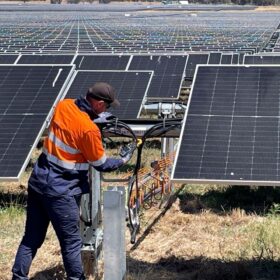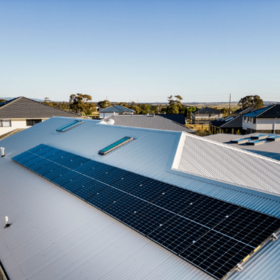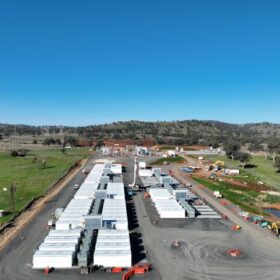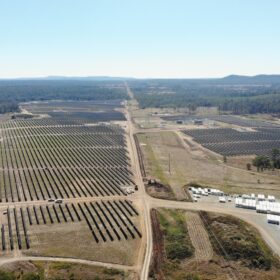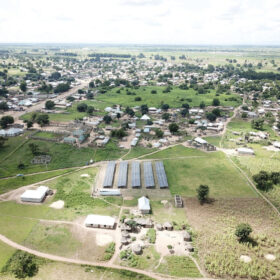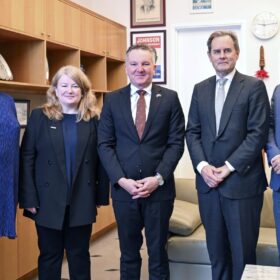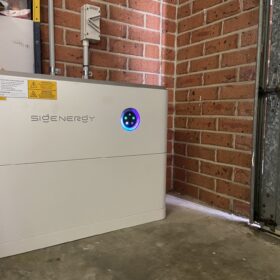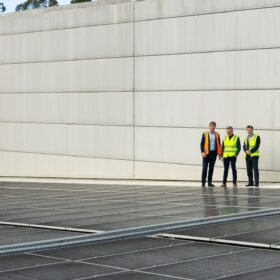Pacific goes public with 700 MW solar and 1.6 GWh battery plans
The developers behind a proposed a 700 MW solar farm and a 400 MW / 1,600 MWh battery energy storage system planned for central west New South Wales have reached a new milestone with the environmental impact statement now open for public comment.
Renewables share hits record high in NEM
The share of renewables in Australia’s main electricity grid has reached a new high with rooftop and utility-scale solar, wind and hydro combining to deliver 76.4% of electricity demand on Monday.
Akaysha secures $300 million to accelerate global battery rollout
Australian battery storage developer Akaysha Energy has closed a $300 million corporate debt facility that will support the expansion of its large-scale battery project pipeline on a global scale.
First Graphene claims major boost for perovskite solar cell efficiency
Western Australian graphene supplier First Graphene has reported the addition of its functionalised graphene product to perovskite solar cells has increased efficiency almost two-fold and reduced production costs by up to 80%.
Metlen moves towards full operation with 120 MW solar farm
Fifteen months after construction of the Munna Creek Solar Farm in southeast Queensland began, the 120 MW PV power plant has entered the market operator’s grid management system and can now work its way through the testing and commissioning process.
Digital transformation in off-grid solar: A comprehensive roadmap for practitioners
As off-grid solar systems expand to serve remote and underserved communities worldwide, digitalisation has become a crucial need for efficient project development, implementation, and long-term sustainability. A new report from IEA PVPS Task 18 systematically explores digital tools across the entire off-grid energy project value chain, providing much-needed guidance for practitioners looking to optimise their operations.
CEFC pumps $3.8 billion into Marinus Link project
The proposed Mainus Link undersea high-voltage interconnector between Tasmania and Victoria is advancing towards construction with financing now locked in and suppliers issued with “notice to proceed” on key components.
Winaico introduces ultra black back-contact module with 23.5% efficiency
Solar PV manufacturer Winaico has launched a new “ultra black” back-contact solar module with a power output of up to 480 W and a conversion efficiency topping 23.5% in the Australian market.
Household battery uptake continues to boom
Battery installations in Australian homes and businesses have surged on the back of the federal government’s $2.3 billion home battery subsidy with new data revealing 423 MWh of battery energy storage capacity was registered across the country in August 2025.
Arnott’s powers up solar and battery system in push towards 100% renewables
One of Australia’s largest behind-the-meter solar and battery energy storage installations has been officially powered up at biscuit manufacturer Arnott’s Group’s production facility in western Sydney.

